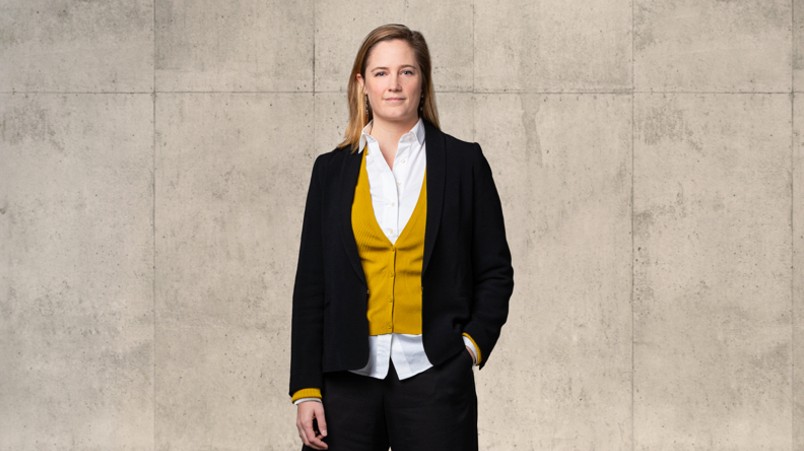JCDecaux won’t be carbon neutral anymore – here’s why you shouldn’t be either

There’s a big problem with carbon neutrality: We can’t neutralise our way out of the climate crisis. So JCDecaux is dropping the term, instead going all out for net-zero. Head of ESG Alexandra Heaven challenges advertisers to join them.
It’s a well-known fact that sometimes, especially in advertising, illusion outshines reality. But when it comes to sustainability, without clear and credible efforts, we risk going backwards, right when we need urgent and deep action the most.
So, we're taking a stand. Starting in 2024, JCDecaux will drop the claim of carbon neutrality, which it has committed to since 2015, focusing instead on the transparency and accountability of our science-based net-zero target.
Carbon neutrality - which, in short, means buying carbon offsets equivalent to the amount of carbon emitted - has been a useful and motivating claim across the economy. It has pushed companies to measure their emissions and, importantly, to understand the source of those emissions. JCDecaux Australia first undertook this process in 2015, and the methodology we built and refined will now underpin our shift to reduction.
Carbon neutrality also, effectively, creates an internal carbon price, the proceeds of which go towards, in many cases, valuable projects. Some of those projects we will continue to support, not to claim ‘neutrality’ for our business, but to contribute to critical removal, and mitigation projects across the country.
But there is a big problem with carbon neutrality.
We cannot neutralise our way out of the climate crisis. Carbon neutrality does not mean, as the title infers, that your business now has a neutral impact on climate change. It doesn’t mean, as suggested in a recent ad, that Mother Nature herself cautiously approves of your efforts. Critically, carbon neutrality does not equate to emissions reductions. A business can continue or even grow its emissions as long as its pockets are deep enough to fund the offsets.
Carbon neutrality differs from its cousin net-zero in that net-zero requires science-based emission reductions. The science-based element means that those reduction targets are aligned to what is needed to keep global warming below 1.5 degrees. Only after significant reductions (90 per cent for most companies) are the remaining, hard-to-eliminate emissions removed through carbon removal projects. Net-zero is a more meaningful and genuine sustainability action.
Globally, JCDecaux has a target of net-zero by 2050 across Scope 1, 2, and 3, which means we are committed to reducing emissions across our own operations, our purchased energy, and our supply chain by 90 per cent versus 2019 figures. For the remaining 10 per cent of emissions, we will invest in carbon removal projects beyond our own value chain. Our 2030 ambition is to reduce Scopes 1 and 2 by at least 60 per cent and Scope 3 emissions by 46 per cent compared to 2019.
Until we are closer to these ambitious 2050 targets, we will be transparent about our emissions and our reductions so our clients and partners understand the progress we are making. For example, we have been collaborating with screen supplier Big Screen Video to adapt the LEDs and power supplies used to reduce power usage by up to 15 per cent. We are on track, retrofitting all classic (static) small format assets from fluorescent lighting to LED by 2030, which will see an up to 80 per cent reduction in electricity usage; and we have a number of solar panels on bus shelters, with a new solar trial project starting next year. We’re also testing new billboard materials that have in-built recycling or end-of-life solutions.
Building a future-fit business
With new sustainability reporting legislation and the banning of ‘climate-neutral’ terms in Europe coming into effect in the next year, as well as Australia’s own climate reporting legislation, JCDecaux is committed to ensuring we are doing our utmost to build a business that is future proofed and future facing. One that is here for the long term, operating today as if we are still thriving in 2030 and beyond.
We are realistic and know this isn’t going to be easy, nor will it be a straight downward line of ever-decreasing emissions. It is pretty darn difficult to decarbonise your business, in fact, I would go as far to say it is impossible to completely decarbonise a business in today’s world. We are throwing off the comforting cloak of carbon neutrality, not in defeat, but in recognition of the need to keep moving, pioneering, and pushing through the barriers to sustainability, while being honest about the journey.
While we don’t profess to have all the answers on how to get there, we do believe we are on the right track. Additionally, we are certain we will achieve the globally shared goal of a more sustainable future faster through open dialogue with our clients, partners, and even competitors.
For that reason, we are launching a Sustainability Industry Engagement Series. We want to invite all our stakeholders to the table – every industry player interested in advancing the collective impact – to openly discuss challenges, opportunities, failures, and successes, so we can walk this talk together, with a shared vision for greater sustainability in the media and advertising sector.
While the Industry Engagement Series will launch in 2024, I’ll be offering a ‘sneak peek’ of the type of content we will be covering, and sharing an announcement about our next step on this journey, at our session at the Purpose Conference in Sydney on 8-9 November.
The shift from carbon neutrality to net-zero is a step towards making effective and necessary change. We challenge you to join us.
